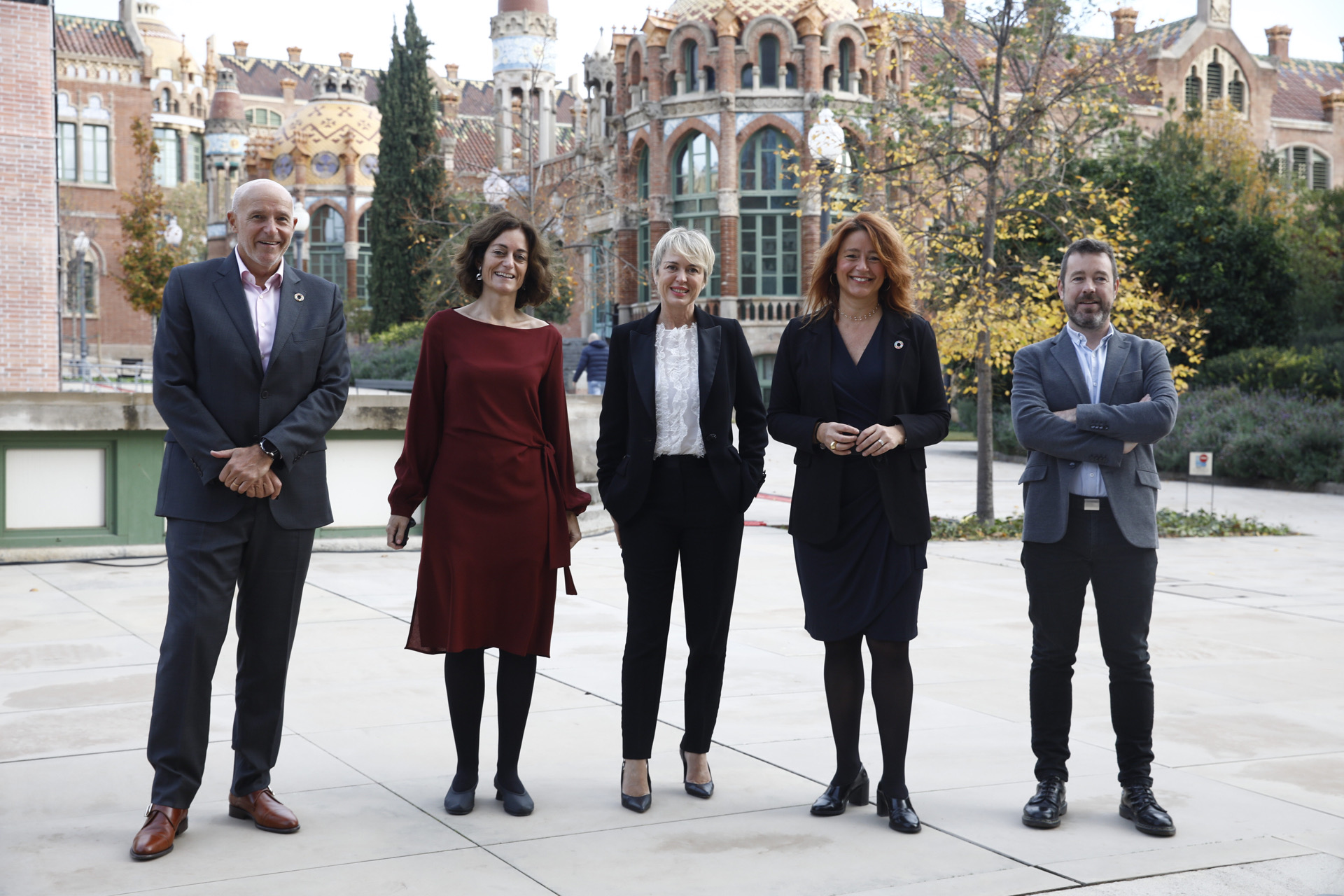- During the opening act about ethics applied to the technological revolution, the importance of building a digital future with and for people to alleviate challenges such as digital divides, the ethics of Artificial Intelligence, data privacy and the sustainability of technological innovation, outstands.
- The event, organized by Digital Future Society and the City Council of Barcelona, counted with the presence of global digital transformation speakers such as Werner Stengg, member of the cabinet of the Vice-President of the European Commission; Morten Meyerhoff, advisor of electronic governance at United Nations University (UNU-EGOV); Sarah Chander, senior political advisor of the European Digital Rights Initiative; John Paul Farmer, CTO of New York; and Carissa Véliz, writer and philosopher of the Institute of Ethics in Artificial Intelligence at the University of Oxford.

15 November, 2021
Barcelona, 15 th of November 2021. – The event “Humanism in the digital age: the urban contribution”, organized by Digital Future Society and the City Council of Barcelona, initiated this morning with an institutional opening that highlighted the need to focus on the application of ethics and protection of citizens’ rights in a digital sphere, covering all aspects of the current digital transformation. The act focuses on diagnosing the impact of digital transformation on society – and essentially explores from an urban environment new solution to combat inequalities. The international event that brings together more than 150 entities and 40 speakers is held throughout the day at the Hospital de la Santa Creu i Sant Pau (Barcelona) and can be followed via streaming at https://barcelonadigitalhumanism.digitalfuturesociety.com/.
The institutional inauguration act included the Secretary of State for Digitalization and Artificial Intelligence of the Government of Spain, Carme Artigas, the third Deputy Mayor of the City Council of Barcelona, Laia Bonet, and the Director of Digital Future Society, Cristina Colom. In their speeches, they agreed on highlighting the role of Barcelona as a leading technological human-centred perspective globally and warned that the future of our digital transformation must consider people and their rights and interests when designing and implementing technology.
Cristina Colom, responsible for opening the event, started by stressing that in order to place people at the heart of the current technological revolution, we need “a collaborative attitude between entities and institutions that share the same objective”. In this regard, she added that “the way we deal with these challenges, the way we seek for solutions or encourage international cooperation, will determine the construction of our digital future”. The fight against digital divides is one of the central themes of the event, along with other challenges generated by the digital emergency, such as the application of Artificial Intelligence, or situations caused by the digital transformation that must be faced by making technology “thought by and for people, guaranteeing the protection of their rights”. The Director of Digital Future Society has also pointed out the role of cities in this process, ensuring that they are “generators of change and adaptation to tackle some of the most complex challenges; for this reason, they play an important role in the construction of a more inclusive and sustainable future”. In this area, Colom concluded by stating that “now is the time for Barcelona to lead this critical action” for technological humanism.
In turn, Laia Bonet stated that “Barcelona wants to be the spearhead of a new European digitalization model, which places people and their rights at the heart of innovation”. Thus, the third Deputy Mayor of Barcelona believes that “a new business model must be promoted to enhance social equality over economic profitability” and considers that “administrations have an important role to play influencing this area, investing in technologies that impact on society and building public technology. It is a political will”. Bonet has also stressed the importance of implementing public policies “to ensure the privacy of citizens’ data and regulate Artificial Intelligence solutions to ensure and protect our human rights”. The Deputy Mayor also highlighted the need to face up to the challenges of the climate emergency and digital emergency together, ensuring that “we are facing the greatest challenges of our time”, a key aspect to achieving a fair and equitable transition for society.
The inaugural event was closed by the State Secretary of Digitalization and Artificial Intelligence, noting that, with today’s event, “Barcelona is once again the capital of digital humanism”, referring to the role of the city and its promotion of debates about technology with a global scope. Carme Artigas considers that digital society must move forward with a “human-centred perspective”, stating that “we are living a new era, based on digitalization, and this affects both social relations and power dynamics between administrations and technological actors”. The Secretary of State has encouraged “an update of the movement that defends Human Rights applied to a digital domain” where technology is “positioned at the service of people, with a social and transformative perspective”. Carme Artigas has also focused on eliminating digital divides by stating that it is one of her main goals since “it is a major problem in the digital domain that must be faced worldwide, including Spain”, and therefore, “all new technologies must be built to achieve this goal”. Artigas has ended by highlighting the task being done from “the democratic accountability and guarantees that we must apply from the public administration” with projects such as the Digital Rights Charter and the launch of the new Observatory for the social impact of algorithms.
Digital rights and ethics applied to Artificial Intelligence, at debate
The “Humanism in the digital age: the urban contribution” event brings together the main public administration actors, political leaders, experts, researchers, activists, and community organizers, emphasising the importance of acting. The act received highly recognized international voices in the sector. Werner Stengg, a member of the cabinet of the Vice-President of the European Commission; Morten Meyerhoff, an advisor on electronic governance at the United Nations University (UNU-EGOV); Sarah Chander, a senior political adviser of the European Digital Rights Initiative; John Paul Farmer, CTO of New York; Carissa Véliz, writer and philosopher of the Institute of Ethics in Artificial Intelligence at the University of Oxford and Anne Kaun, a researcher and guest lecturer at the University of Södertorn (Sweden); are some of the speakers involved.
The event is organized in several sessions and round tables to identify, explore, and discuss how to address the challenges caused by the current digital transformation, focused on two major topics: digital rights and the application of ethics to Digital Intelligence. Likewise, some of the major challenges posed by digital emergency will be addressed, such as digital divides, privacy in data usage, implementation of algorithms in emerging technologies, or environmental aspects of technology to achieve a green digital transition.
However, this technological revolution has also shown that digitization can be an enabling tool capable of enhancing solidarity networks between public and private entities to ensure essential services and promote social cohesion.
Stay up to date about everything
Subscribe to stay up to date with the latest content from Mobile World Capital Barcelona.
